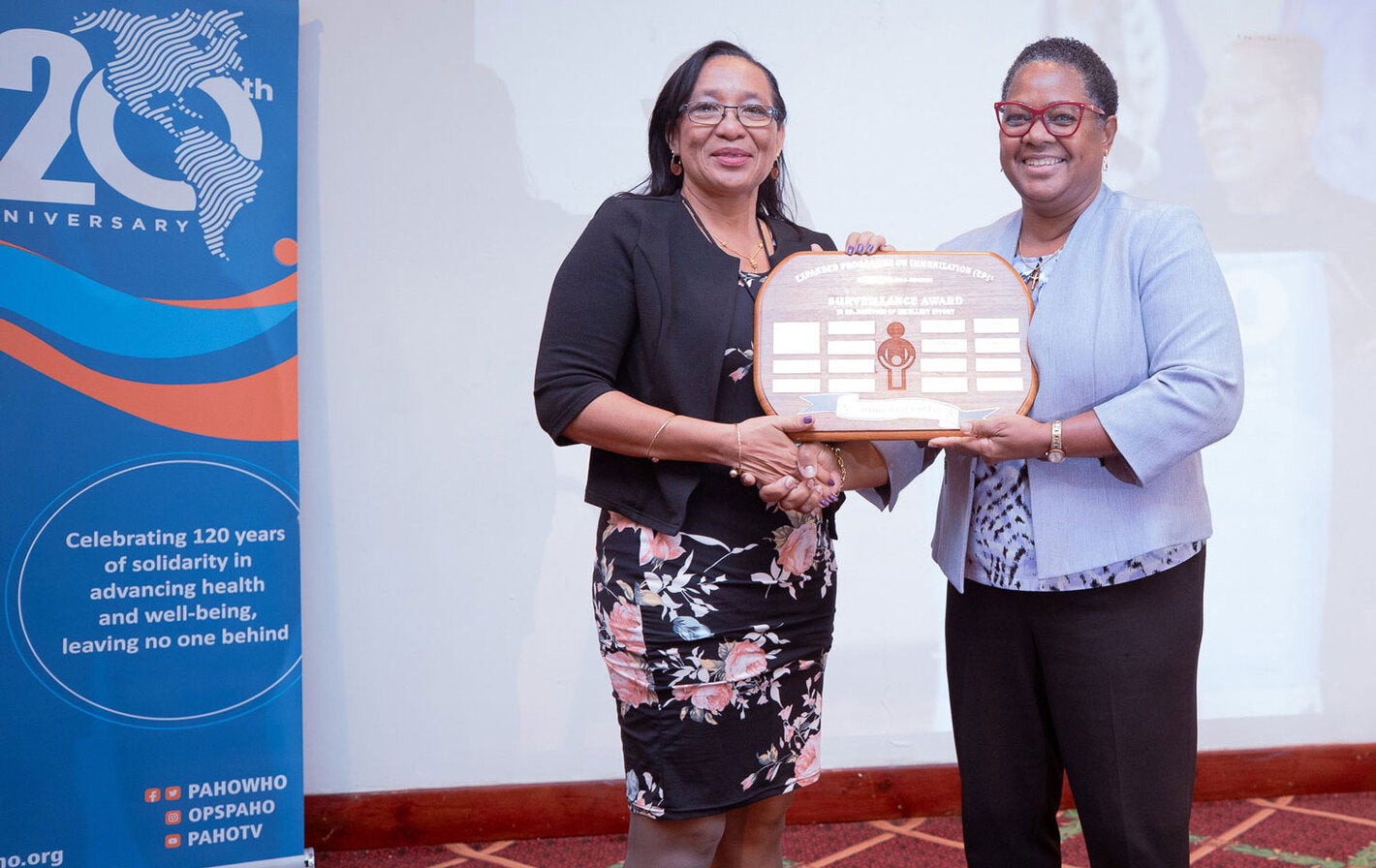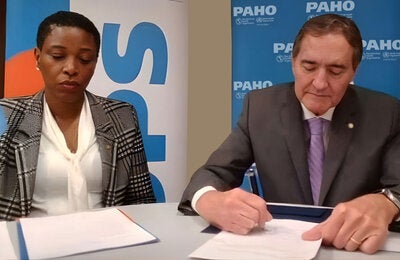
Belize City, Belize, 3 November 2023 (PAHO/WHO) – At the end of the 37th Meeting of Caribbean Immunization managers held from 30-31 October, Belize emerged as the winner of the surveillance award presented by the Pan American Health Organization. Taking second and third place respectively, was Guyana and Barbados and the Henry Smith Award for most improved immunization coverage in 2022 was awarded to the Turks & Caicos Islands.
Dr Karen Broome, PAHO Advisor, Immunization, reported that the Caribbean subregion has reversed the decline in vaccination coverage that occurred in 2020 and 2021 with improvements in the third doses of DPT3 (94%), Polio3 (92%) and MMR1 (91%) recorded in 2022 but there is still work to be done with, MMR2 and HPV vaccines, which continue to struggle to meet the 95% and 80% targets respectively.
Meanwhile, Professor Peter Figueroa, Chair of the Caribbean Technical Advisory Group on Immunization (CiTAG), commended the EPI managers for their dedication and commitment and congratulated all countries. He encouraged them to work together and support each other to sustain the gains and go forward. “We need to ensure that we ‘catch up’ fully, including those children who we have missed so that they do remain susceptible. And we note the progress. There has been definite progress DPT 3, 94%, Polio 3, 92%, this is close to 95% and we want to go beyond 95%. MMR 1 91% but MMR 2, 83% so the MMR 2 has a drop out and we have to close that gap and ensure that we reach our 95% targets,” Prof Figueroa said.
He however cautioned that in the Caribbean, because of the past successes of the EPI program and the elimination of several childhood diseases, most adults under 40 years of age are not aware of the childhood diseases for which we give vaccines. “It is abstract. They don’t know what it is to see a child sick in a hospital or dying. This also includes all the health care professionals under the age of 40. They may never have seen a measles case, so we have to recognize that this makes it more challenging for us to get the message across how important vaccination is. So, we need to start with health workers who have concerns or who are being influenced by misinformation, identifying these concerns, and preparing a systematic program to educate health care workers first,” Professor Figueroa stressed.
Belize’s EPI Manager, Dr Liliane Middleton was excited to take the first place. She described it as a testament to the hard work of public and private health professionals and noted that Belize was focused on strengthening surveillance indicators, recording more samples, getting more people trained and retrained and going into the community to promote and provide vaccines.
“I am so excited. I am delighted. Emotional… because I did not expect for us to win that prize. I was speechless. It is a great feeling because we got the support from the staff and so winning this prize is a joyful feeling. I know the staff out there is happy, so it is an honour that we won this prize,” Dr Middleton expressed.
During the meeting the participants received updates on the program in the Americas, in the Caribbean, the status of the Measles/Rubella and Polio Elimination and received updates from the PAHO Revolving Fund. They also heard country reports from Barbados, Belize, Grenada, St Lucia, Trinidad and Tobago and the Bahamas. The meeting concluded with an ‘Effective Communication for Vaccine Uptake for Caribbean EPI Managers’ workshop which included communicating vaccination related risks, integrating gender, and intersectionality into risk communication and community engagement and navigating discourse among marginalised communities.
The Henry C Smith Immunisation Award was established in 2004 in honour of Mr Smith, the first PAHO-EPI Technical Officer for the Caribbean subregion. Mr Smith’s formal service in the sub-region spanned from 1977 to 1995. He attended this year’s meeting and is still active in providing guidance to Caribbean Immunisation Programmes today through his participation in the CITAG.
The Immunisation trophy was established in 2001 by EPI-CAREC (Caribbean Epidemiology Centre), on behalf of the Family and Community Health, Immunisation Unit at PAHO.



